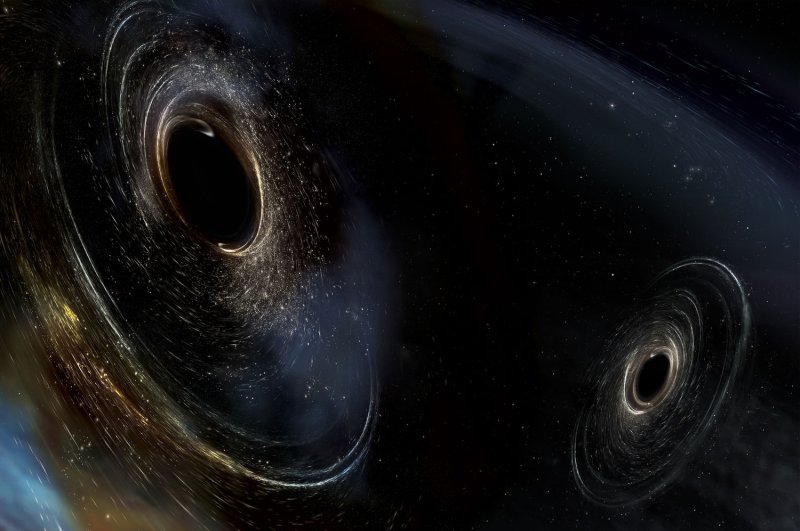Artist's conception released on June 1, 2017, shows two merging black holes similar to those detected by LIGO. Researchers believe gravitational wave observations suggest formation scenarios for black holes. Photo Courtesy Aurore Simonnet/Sonoma State/Caltech/MIT/LIGO/UPI |
License Photo
Aug. 23 (UPI) -- Scientists at the University of Birmingham have identified formation scenarios of black holes by observing gravitational waves.
The study, published today in Nature, utilized the LIGO gravitational wave detector in 2015 and 2017 to make landmark observations of gravitational waves.
Physicists found that the first detected gravitational waves observed in 2015 were produced during the final fraction of a second of the merger of two black holes to produce a single, massive spinning black hole.
The first formation scenario researchers found was that black holes are spinning slowly leading to something different happening to stars that form black holes than those in Earth's galaxy. The second scenario was that black holes spin rapidly, similar to those in Earth's galaxy, but that they tumble during formation and are no longer aligned with orbit. This would result in a more dynamic formation.
"By presenting these two explanations for the observed behavior, and ruling out other scenarios, we are providing those who study and try to explain the formation of black holes a target to hit," Will Farr, of the School of Physics and Astronomy at the University of Birmingham, said in a news release. "In our field, knowing the question to ask is almost as important as getting the answer itself."
Researchers believe that there is a chance that both scenarios could be true, meaning there are instances of black holes spinning slowly in the field and rapidly in a dense environment.
"We will know which explanation is right within the next few years," Professor Ilya Mandel, of the University of Birmingham, said. "This is something that has only been made possible by the LIGO detections of gravitational waves in the last couple of years. This field is in its infancy; I'm confident that in the near future we will look back on these first few detections and rudimentary models with nostalgia and a much better understanding of how these exotic binary systems form."















